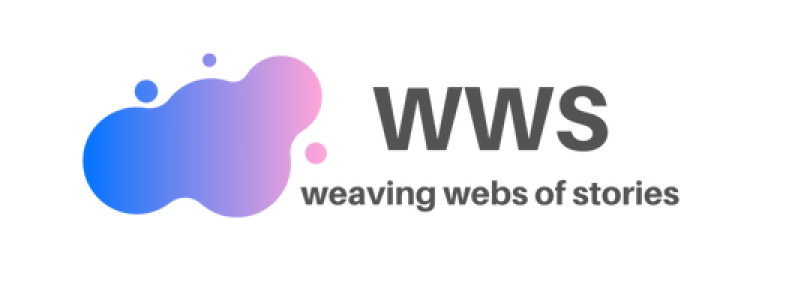Weaving Webs of Stories

Weaving Webs of Stories Project No 2019-1-UK01-KA201-062128 is an Eramus+ project that has developed a training programme focusing on 10-14-year-old children in a transnational effort to boost literacy and help young people, challenge hatred and discrimination, and become advocates for inclusion and equality. The main aims of this programme are, via non-formal learning, to develop and promote literacy skills and combat discrimination. The empowerment, which achieving these main objectives generates, would also manifest itself in a third achievement – the so-called socio-emotional literacy, which stories, books, poems, theatre and other creative activities inevitably pave the way for.
You will find more information on the Weaving Webs of Stories project website.
Here you will find the intellectual outputs of the project with a short explanation.
Intellectual Outputs
Our project outputs relate to each other in an organic way, building from initial strategy planning to pilot activity and finally the completed web-based training course. A clear thread links the outputs, as follows:
Intellectual Output 1
This outcome, sets out in concise, accessible form the intellectual underpinning of our approach, around the significance of literacy and its relationship with diversity and equality, and good practice (as academically assured) for non-formal learning approaches, signposting practitioners and institutions in a practical way towards the approaches they need to adopt to integrate these interventions into whole school policy and practice.
This work, with its practical focus, was able to inform the development of the second outcome, our pilot curricula and sessions with young people. At the same time, the project’s own experiences in creating these curricula and piloting our approach in schools across partner countries themselves constituted further research which formed feedback assisting in the finalisation of IO1. In this way the outcome also reflects IO2 output learning. The guide is also a resource for schools and NGOs who may wish to develop their own strategies, and a wider template for non-formal learning approaches more generally.
A long document was created by the IO1 Leads and updated throughout the project aimed at contributing to the development of the curricula in partner countries and the online training course (IO3) so that key messages from the strategy handbook could be incorporated in the web-based course and resources.
Intellectual Output 2
Creation of the literacy project curricula and piloting creative activities
This output, the core practical activity of the project, involved all partners researching and developing curricula, planning and running pilot courses in their schools incorporating the strategic approaches in IO1. It both meets the objectives set out as IO2, and also, as set out above, provided further experience to feed back into final strategy development. At the same time, the courses themselves, the curricula developed, practitioner and participator feedback and our own evaluations, including documentation outlining processes, methods and alternative techniques, were important contributions to the process of creating IO3 as a robust resource for schools, NGOs and education authorities.
IO2 co-lead, in collaboration with the partners, also created a paper as a working document, IO2 Towards the online Training course, in order to enable the creation of the web-based Training Course and Resources package, IO3.
This paper was continuously reviewed and updated to incorporate additions and revisions made to the curricula during the piloting of the school sessions.
Towards the online web Training Course
Intellectual Output 3
The online course can be accessed from the WWS Project website, which will be maintained until the end of next year and will be transferred to the Finsbury Park Trust website after the end of 2024.
Online training and learning resources package
The web-based training course and pack both meets the objectives set out as IO3, and also reflects the strategic underpinnings set out in IO1 and the learnings from our IO2 working group document Towards the web-based Training course. It incorporates the processes the partnership employed throughout in developing the project, the key strategic messages and the techniques that worked well for the IO1 strategy document and IO2 training course documents.
A key innovative feature of this output was its focus on supporting schools to run these kinds of interventions themselves, at low cost, as well as its application of non-formal learning good practice to the sometimes “difficult” issues of prejudice and discrimination, demonstrating the value of the approach as well as the practicalities required to expand sessions to tackle issues including bullying, climate change, healthy living and so on. In this way the output went beyond what was originally set out.